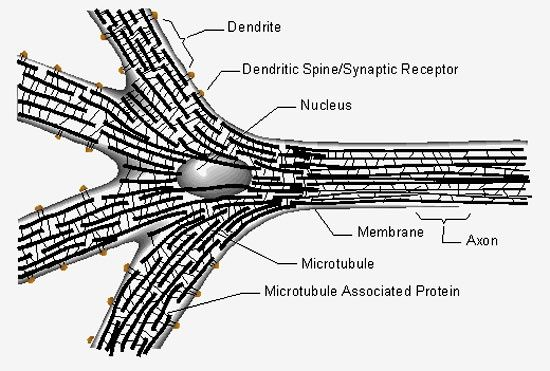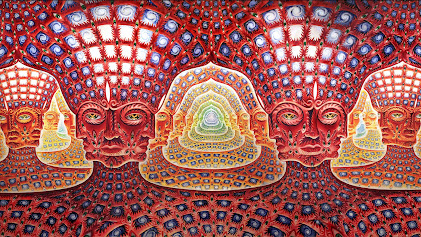Blog #10: The Universe In Our Mind
The relationship between quantum mechanics and consciousness
is a topic of much debate and speculation in the fields of physics, philosophy,
and neuroscience. While there is no consensus on the nature of this
relationship, many researchers believe that quantum mechanics may hold the key
to understanding some of the mysteries of consciousness.
Quantum mechanics is the branch of physics that studies the behavior of particles at the atomic and subatomic level. It is a notoriously complex and counterintuitive field, and has led to some of the most important and counterintuitive discoveries in science, including the wave-particle duality, quantum entanglement, and superposition. One of the most intriguing aspects of quantum mechanics is the idea of superposition, which states that a particle can exist in multiple states at once until it is observed or measured, at which point it collapses into a single state. This idea has led some researchers to speculate that consciousness may play a role in the measurement process, and that the act of observation may somehow be connected to the subjective experience of consciousness.
One of the most influential theories in this area is the
Orch-OR (orchestrated objective reduction) theory, proposed by physicist Roger
Penrose and anesthesiologist Stuart Hameroff. According to this theory,
consciousness arises from quantum events that occur in the microtubules of
neurons, which act as tiny quantum computers. These quantum events are said to
be orchestrated by a non-computable process in the brain, which leads to the
collapse of the wave function and the emergence of conscious experience.
While the Orch-OR theory has received a great deal of
criticism from both physicists and neuroscientists, it has also sparked a great
deal of interest in the idea that quantum mechanics may play a role in
consciousness. Some researchers have proposed more moderate versions of the
theory, which suggest that quantum mechanics may be involved in certain aspects
of brain function, such as synaptic plasticity or neural coding.
Another area of research that has generated interest in the
relationship between quantum mechanics and consciousness is the study of
entanglement. Entanglement is a phenomenon in which two particles become
correlated in such a way that the state of one particle depends on the state of
the other, even if they are separated by large distances. Some researchers have
suggested that entanglement may be involved in the formation of conscious
experience, and that consciousness may be a manifestation of a larger entangled
system.
While the idea of a connection between quantum mechanics and
consciousness is intriguing, there is currently no conclusive evidence to
support this hypothesis. Many researchers believe that consciousness is a
purely biological phenomenon that arises from the complex interactions of
neurons in the brain, and that quantum mechanics has little or no role to play
in the study of consciousness.
Despite these challenges, the study of quantum mechanics and consciousness remains an active and fruitful area of research. By exploring the potential connections between these two fields, researchers may be able to gain new insights into the nature of consciousness and the workings of the brain. One promising avenue of research in this area is the study of quantum cognition, which seeks to apply principles of quantum mechanics to the study of human cognition and decision-making. According to this approach, human cognition may be better understood using quantum principles such as superposition, entanglement, and coherence, rather than classical principles of probability and logic.
One of the most interesting applications of quantum cognition is in the study of decision-making under uncertainty. Traditional models of decision-making assume that people weigh the probability and utility of different outcomes to make rational choices. However, research has shown that people often make decisions that do not conform to these models, and that their choices are influenced by factors such as emotions, heuristics, and biases. Quantum models of decision-making suggest that people may make decisions based on a "quantum probability" that takes into account both the objective probabilities




This was such a fascinating read! I have similar questions and enjoyed diving in from your perspective. Well done gathering valuable information and presenting it clearly
ReplyDeleteHey Valentin,
ReplyDeleteThis blog was very interesting the least to say. I have a lot of interest towards this subject, and found the areas of research you depicted very descriptive and informative. It is the first time I have heard of "Orch-OR" and find the theory truly compelling.
V/R
Sam Plourde